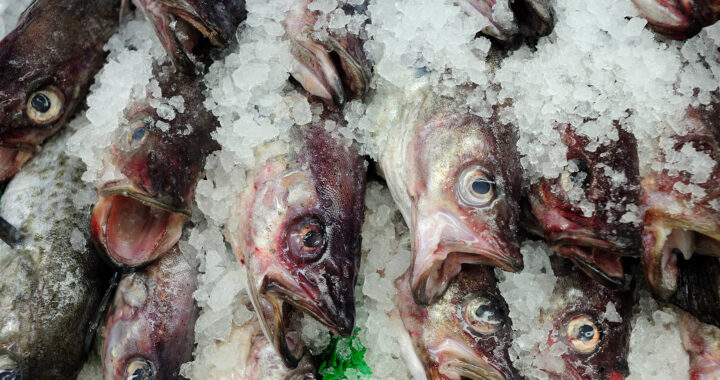For more than a century, the United Kingdom has witnessed a dramatic transformation in how it secures seafood. In 1900, domestic waters supplied almost all demand, and only a few imports were required. The country was self-reliant. Today, imports dominate the market, sourced from dozens of distant countries across the world.
Overfishing, Regulation, and Global Trade: Tracing the U.K. Seafood Journey Across 120 Years
Investigating the Transition to Import Reliance
A historical study has traced how U.K. transformed from seafood self-sufficiency to reliance on global imports. Conducted by Zoe Heard, Callum Roberts, and Ruth Thurstan, all from the Centre for Ecology and Conservation at the University of Exeter, the research analyzed 120 years of data, highlighting environmental, ethical, and economic consequences.
The methodology was extensive. Researchers examined official government records, international trade statistics, and global fisheries data from the Food and Agriculture Organization of the United Nations. They then compared domestic landings against imports, mapped geographic sourcing, analyzed species composition, and calculated average transport distances.
Long-term data specifically covered the period from 1900 to 2020. The socio-ecological impact assessment included environmental impact, ethical dimensions, and food security risks. Critical inflection points in the dataset were also identified. These included the period before the First and Second World Wars and the introduction of European Union policies.
A mixed approach provided insights into ecological, social, and economic transformations across more than a century. Patterns of overfishing, shifting consumption, and trade expansion were reconstructed through statistical analysis, geographic mapping, and historical interpretation. This revealed complex interactions between environment, society, and markets.
Factors that Reshaped U.K. Seafood Supply
The story begins with abundance. During the early 20th century, British fleets harvested significant catches from nearby seas. This practice provided stability for decades. Yet relentless pressure on fish stocks gradually undermined the natural balance. Overfishing eroded the once plentiful populations, leaving many marine species in steady decline.
Governments introduced regulations by the mid-20th century to stem ecological damage. These policies, designed to protect dwindling stocks, also reduced domestic availability. The gap between supply and demand widened. This forces reliance on imported seafood products. Thus began a long journey from local sufficiency to global dependence.
The pivotal moment occurred in 1985. That year, imported seafood surpassed domestic landings for the first time in history. It marked a turning point that revealed how profoundly the national seafood system had changed. This reliance would only intensify later. Importation has expanded into one of the most globalized supply networks today.
By 2020, the United Kingdom found itself importing over six times more seafood than a century earlier. Its suppliers come from 89 nations across all continents. The average journey of imported seafood exceeded 2000 miles. This figure highlights the economic depth and environmental implications of an expansive and complex global supply chain.
Another critical factor behind these shifts is the depletion of seafood species popularly consumed in the domestic U.K. market. These include cod, haddock, salmon, tuna, and prawns. Yet these species are either scarce in local sea waters or absent entirely. This consumption pattern entrenched dependence on foreign sources for preferred varieties.
Impacts of Reliance and Policy Implications
The environmental impact of this reliance is significant. Transporting seafood over long distances contributes a large carbon footprint. This challenges climate-related goals. Moreover, dependence on imported fisheries risks exporting unsustainable practices abroad. If unchecked, the United Kingdom may repeat its history of overexploitation in distant waters.
Moreover, there are ethical dimensions. Local communities may lose access to resources vital for nutrition and employment. This is especially true when seafood is sourced from lower-income countries. Export demand can strain smaller fisheries, limit local consumption, and raise concerns about fair trade, equitable access to resources, and human rights.
The vulnerability has additional policy implications. Reliance on imports exposes the U.K. to disruptions from global events, tariffs, and trade negotiations. The researchers underscored Brexit as a prime example of this risk. Food security is increasingly tied to international relationships rather than domestic resilience, a precarious position for a maritime nation.
Potential solutions were provided. Stronger fisheries management can aid the recovery of local stocks in seawaters. Encouraging consumption beyond the dominant five species can reduce pressure. International collaboration is vital to prevent serial depletion abroad, while supporting local sustainable options reduces emissions and strengthens coastal communities.
FURTHER READINGS AND REFERENCES
- Heard, Z. F. J., Roberts, C. M., and Thurstan, R. H. 2025. “The UK’s Expanding Global Reach for Seafood Over 120 Years.” Reviews in Fish Biology and Fisheries. 35(2): 943-961. DOI: 1007/s11160-025-09942-x
